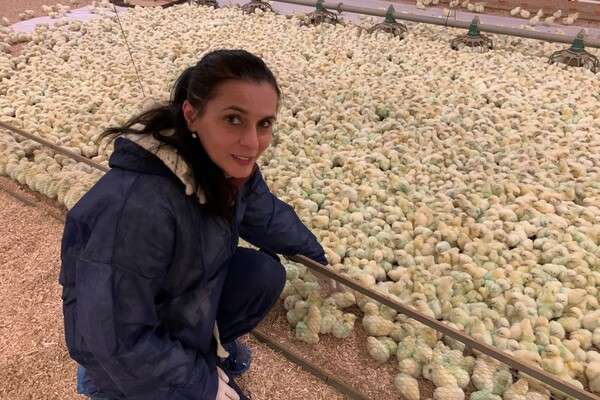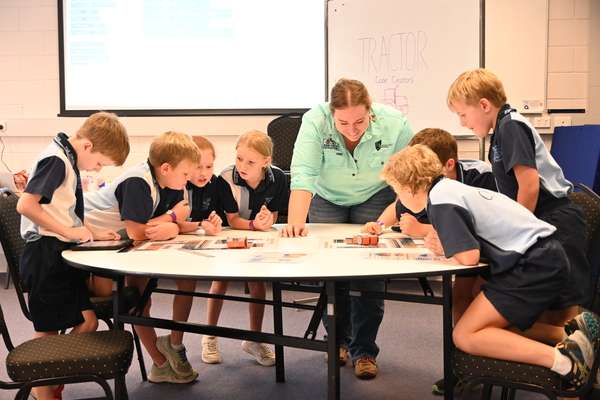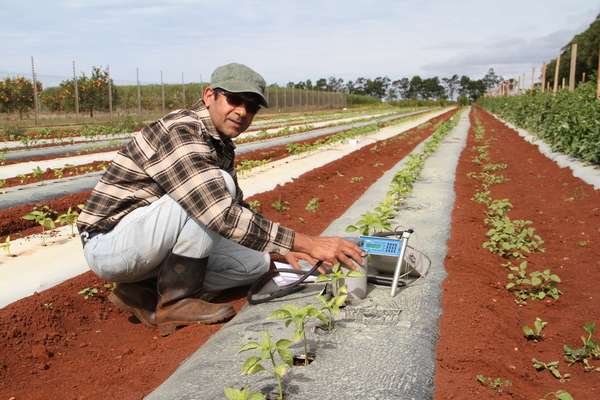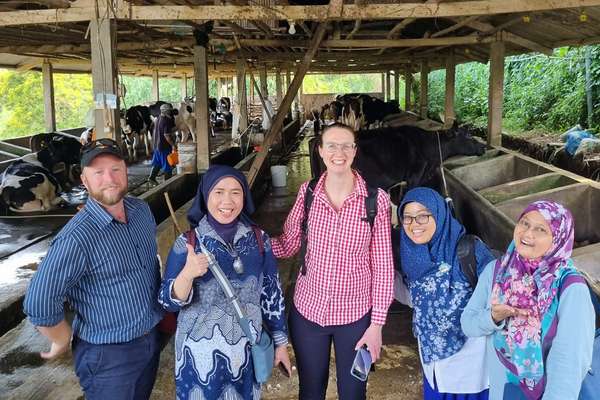
The cropping research group has established a reputation as a leading research provider for many industries and farming communities across northern Australia. The team has a strong multidisciplinary background and engages strategic research partners and collaborators to deliver comprehensive research programs. The research projects target strategic research themes that drive improvements in productivity, profitability and environmental sustainability for the northern Australian cropping sector.
The group contributes to capacity building across northern Australia by supporting research higher degree training, engaging and educating undergraduate students, and enhancing the skills of the existing workforce through train-the-trainer approaches and the development of micro-credentials.
CQU cropping research extends to strategic domestic and international partnerships, particularly for research relevant to tropical, sub-tropical and arid tropical agriculture. Some of the recent and current domestic partnerships involve high value tropical crops research with AgriVentis Technologies Ltd and dual-purpose peanut research with the Peanut Company of Australia. International partnerships extend to pacific peanut crop research in Vanuatu, legume collaboration with Texas A&M, crop abiotic stress with Texas Technical University, hydrogen peroxide for agriculture with Evonik in Germany, Carbon Smart Fertilisers with President Biotech in Taiwan.
The cropping teams research success is reflected through practice change in industry. This includes the widespread use of several drought tolerant mung bean lines commercialised through a CQUni led research program, the introduction of high protein cowpea genetics into Australian cropping systems, the emerging dual purpose tropical legume innovations in northern Australia and the pioneering Australian spice crop research programs including development of the Australian sesame industry.
Specialist research skills
Our research projects co-designed with industry aim to boost the productivity, profitability, resilience and sustainability of cropping systems in northern Australia and beyond. Through close collaboration with growers, industry partners, and international institutions, we are delivering practical solutions that translate to real world practice change with impact and benefits for primary producers and their supporting industries.
This project provides environment-specific recommendations and industry knowledge to support growers to integrate spice crops into both new and existing northern farming systems, including planting protocols and pest management through developing a compendium of weeds, pests and diseases and their control options.
The project investigates best practice machinery use and settings to ensure optimal crop emergence and yield capture. It determines options for drying and cleaning the seed product to assure post-harvest quality.
The project provides gross margin analyses and value chain options in partnership with the team at the Centre for Regional and Economic Supply Chain (CRESC). The data collected will support the development of crop specific export protocols.
The project findings are developed with and shared amongst the growers and industry participating in the research through training of agronomists adding to a skilled workforce in northern Australia.
This collaborative program of research brings together research organisations, industry participants, and seed suppliers to carry out and amplify research in the Australian sesame industry.
The major focus area is that "Industry viability is established by resolving major agronomic and crop protection issues and demonstrating competitive and sustainable production" (Theme 2, Australian Sesame Strategic RD&E Plan (2021 -2026)) and a minor focus area is "High-quality sesame is produced through the post-harvest supply chain" (Theme 3, Australian Sesame Strategic RD&E Plan (2021-2026)). The project findings will be developed with and extended to growers and industry.
This project, in collaboration with AgriVentis Technologies Ltd, undertakes an initial evaluation of a wide range of cereal grain crops genotypes (rice, wheat, barley, corn, sorghum), oil seed crops (mustard, soybean), and dual-purpose legumes for tropical adaptation to determine yield and quality performance.
Promising lines of commercial interest are advanced further to multi-location on-farm demonstration and field-scale trials for further assessment and preliminary seed increase.
The project strategically aims to unlock the potential of tropical dual-purpose legumes through investigating elite genetics and agronomy for growing dual-purpose legumes in northern Australia.
This project, in collaboration with the Peanut Company of Australia (PCA) and supported by Australian Centre for International Agricultural Research (ACIAR) focuses on organic peanut production system analysis for Vanuatu.
Through a research partnership with Vanuatu Agricultural Research and Technical Centre (VARTC), this project explores the opportunities and challenges for developing high-value peanut production and processing for Vanuatu.
The outcome from the current project will inform the development of a longer-term strategic peanut project, “Pacific Peanut” not only for Vanuatu but for the entire pacific island countries.
Our multidisciplinary team of crop, soil, and farming systems experts is focused on applied, industry-connected research. Meet the people driving innovation in tropical agriculture and helping to train the next generation of regional research leaders.
Dr Surya Bhattarai is a trained plant breeder and crop physiologist who bring 20 years agricultural research experience to the team.
Surya has extensive experience in industry applied research in wide range of tropical crops and farming systems for harnessing plant-environment interactions to improve the adaptation of field crops in general, with particular focus on crop abiotic stress, and integrating this knowledge into range of emerging crops for tropics.
Surya track record of external research grants, since 2017 he has attacted $6.9M for 26 projects. Between 2006 and 2019 he secured $3.2M for 30 projects. Surya has a total of 135 publications listed under his name, a h-index of 28 and a i10 index of 54 to showcase the impact of his research.
Dr Tieneke Trotter is a crop and pasture agronomist with a background in ecology and management of perennial weeds in pastures. Her current research involves assessing agronomy and plant phenology for emerging cropping industries in northern Australia with a focus on spice and pulse crops.
Tieneke has worked on a number of research and consultancy projects utilising remote sensing, GIS and agri-tech to monitor the impacts of mining on agricultural and natural environments.
She enjoys engaging with teaching the next generation of agricultural professionals and working with industry to solve problems to improve production opportunities and sustainability.
Tieneke maintains a network of collaborators across the USA and have hosted student exchanges, provided lectures to students and staff and coordinate academic exchanges with a number of universities including The Ohio State, New Mexico State, Kansas State and Oklahoma State.
Federico completed his agronomy degree at the National University of Rosario in Argentina and has on-farm work experience in New Zealand and Argentina. He brings strong technical support skills, and capability for implementation of crop research project, trial planting, maintenance, harvest and processing, data collection and analysis, supporting across different projects.
Dr Charissa Rixon is a post-doctoral researcher with strong farming background and experience working as consultant with industry and growers.
She has a Masters of Agricultural Studies from The University of Queensland which was focused on post-harvest disease control in mangoes, and she completed her PhD on Heat Tolerance in Aerobic Rice.
Charissa’s experience in tropical crop agronomy and chemistry provides a strong practical base for for on-farm research. She is an experienced consultant with a demonstrated history of working in the farming industry and with a wide range of stakeholders in Northern Australia.
Discover how CQUniversity’s Agricultural Microbial Genomics team is improving livestock health and productivity through gut microbiota research, next-generation probiotics, and sustainable farming solutions.

Driving adoption of new farming practices and technologies by changing the way end-users engage with information by combining innovative methods of education, behavioural psychology and mass communications.

CQUniversity’s Precision Horticulture team is focussed on improving the productivity and profitability of Queensland’s major horticultural commodities.

The Precision Livestock Management team leads tech-enabled research to improve productivity, sustainability, and animal welfare in northern Australia and the Indo-Pacific.

CQUniversity Australia is a trading name of Central Queensland University
ABN: 39 181 103 288
RTO Code: 40939
CRICOS: 00219C
TEQSA: PRV12073